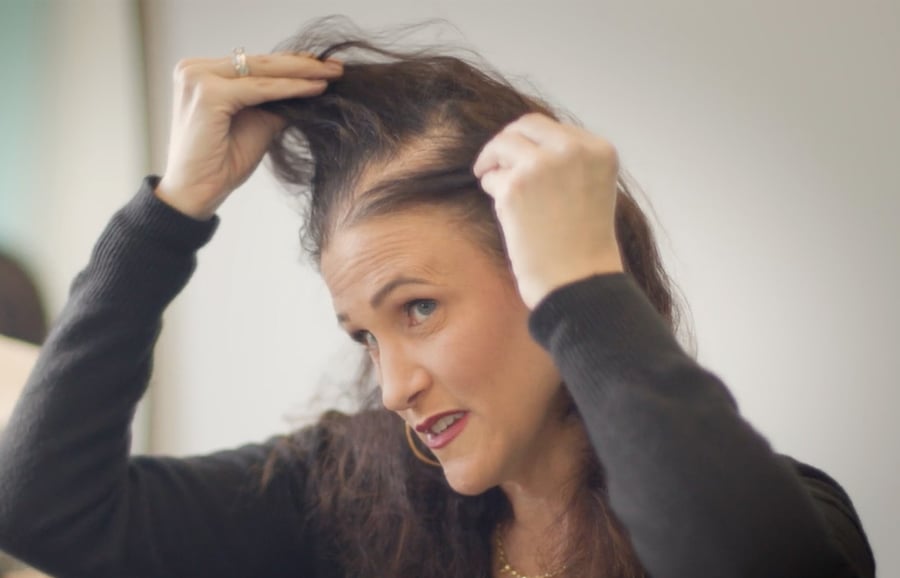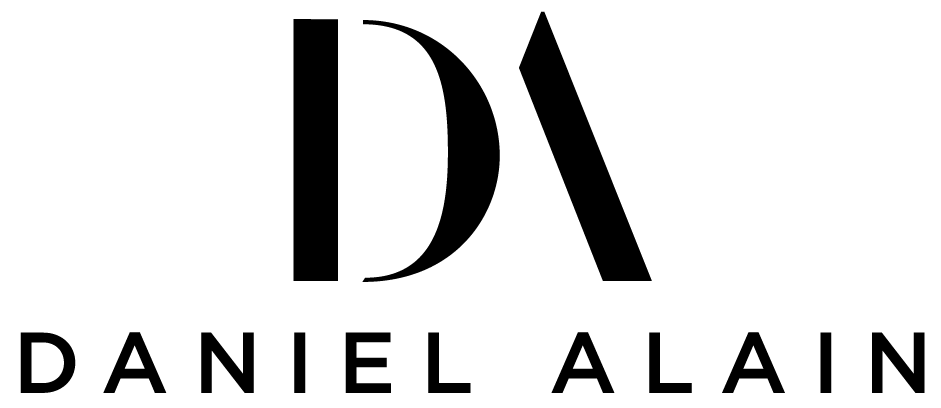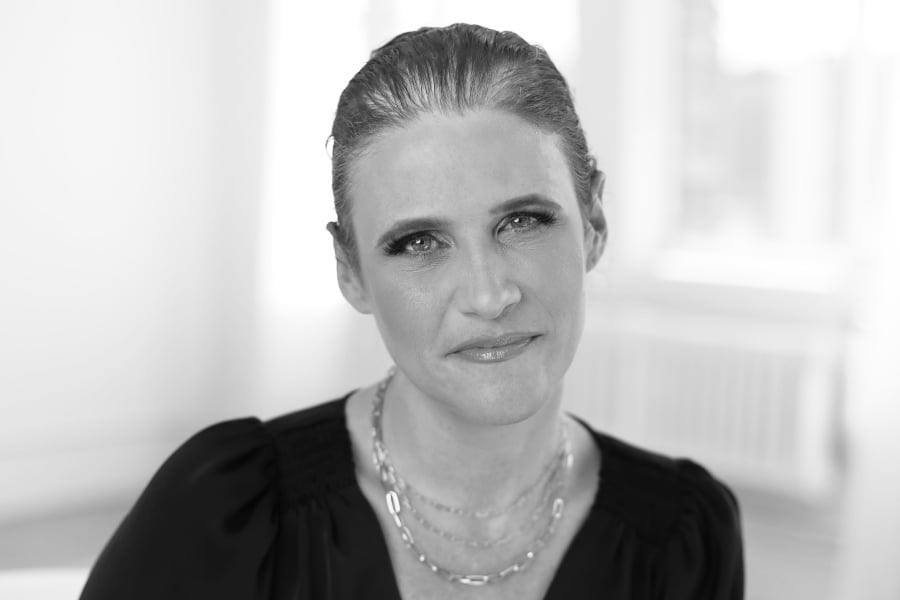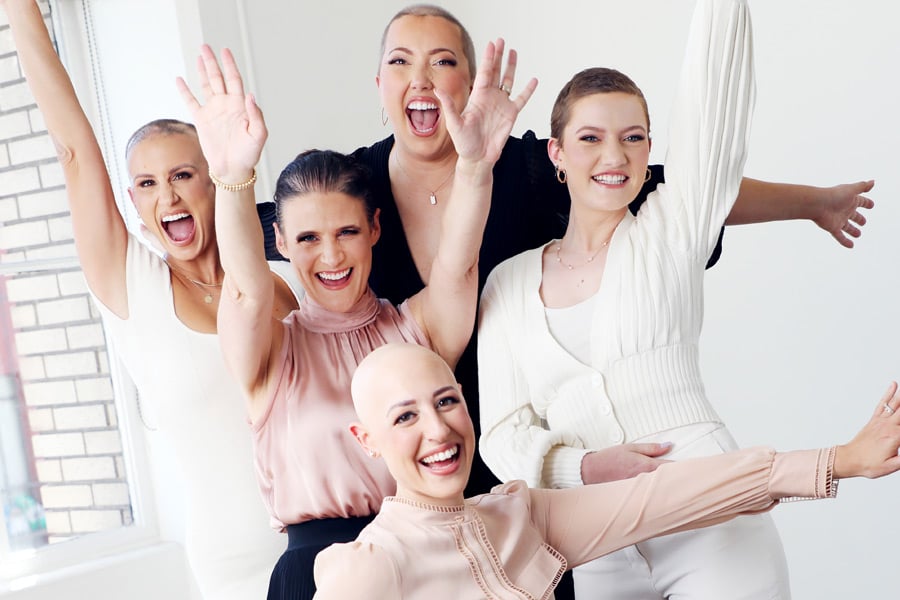Did you know that up to 50% of women will experience noticeable hair loss in their lifetime? If you're seeing more hair on your brush or feeling anxious about a widening part or increasingly visible scalp, you're not alone. Hair loss in women can be an emotional journey that finds you desperately searching for reassurance and solutions.
At Daniel Alain, we understand the root causes of female hair loss and how to manage it. With years of experience guiding women towards the right solution for them, we provide trusted guidance and proven solutions to help you navigate this challenge with confidence.
We’ll break down the most common reasons for women's hair loss and what you can do about it. You'll leave with a clearer understanding of what's happening and, more importantly, the tools to address it.
WHAT CAUSES HAIR LOSS IN WOMEN?

Hair loss is a common and debilitating condition that impacts women of all ages, backgrounds, and walks of life. While many are familiar with common causes, such as aging, stress, or styling practices — there could be other contributing factors at play that you’ve never considered.
Getting to know the many reasons for hair loss in women, as well as the lesser-known causes, is the first step in taking control of your hair health and tackling regrowth.
From the widely recognized to the obscure, here are some of the leading causes of female hair loss:
Family History (Hereditary)
Genetics is one of the most common causes of hair loss in both men and women.
If you're genetically predisposed to hair loss, the presence of hormones like dihydrotestosterone (DHT) can trigger the thinning and shedding of hair.
This hair loss typically results in finer, less pigmented hairs and a greater number of hairs entering the resting (or telogen) phase of the hair growth cycle, resulting in fall-out.
Hormonal Changes & Medical Conditions
Underlying hormonal and medical conditions are also leading causes of hair loss in women.
Hormonal imbalances, such as decreased estrogen experienced during menopause and pregnancy, can cause temporary hair thinning or loss.
The same goes for medical conditions, such as thyroid disorders, autoimmune diseases, or polycystic ovary syndrome (PCOS), which also causes hair loss.
Medications & Supplements (Side-Effects)
While medications are necessary to treat various health conditions, they can sometimes present unwanted side effects, like changes in hair texture and growth.
The severity of drug-induced hair loss depends on the medication, dosage, and sensitivity to that drug.
As for which medications may trigger hair loss, it’s not uncommon if taking:
- Anticoagulants (or blood thinners)
- Antidepressants and mood stabilizers
- Antimicrobial drugs
- Beta-blockers
- Cholesterol-lowering meds
- Antiepileptic drugs
- Oral contraceptives
- Retinoids
- Weight loss drugs
Radiation Therapy
Radiation therapy uses high-energy beams to attack quickly growing cells, mainly cancer cells. However, it also impacts healthy cells in the area. Therefore, triggering hair loss there, as well.
The good news? Completing treatment usually stops radiation-induced hair loss, eventually reverting your hair back to normal.
Stress
When experiencing stress, your body produces high cortisol levels, which can disrupt the hair growth cycle and cause hair loss.
Higher levels of cortisol can also affect the overall health of your hair, making it more prone to breakage or damage.
This is why managing stress and reducing your cortisol production is often one of the best hair treatments for hair loss in women.
Excessive Hairstyling
Excessive styling can trigger female hair loss and contribute to traction alopecia, a type of hair loss caused by tight hairstyles straining your hair and scalp (like tight ponytails, braids, or buns).
Over time, excessive heat styling, chemical processing, and tight hairstyles can all damage the hair follicles resulting in irreversible damage.
Excessive Washing
Washing your hair is crucial for its health and appearance. However, overwashing is one of the top reasons for hair loss in women.
Washing your tresses too frequently strips your scalp and hair of natural oils necessary for optimal strength and growth. This results in dryness, breakage, and potential hair loss.
Vitamin & Nutrient Deficiency
Nutritional deficiencies are another of the many causes of hair loss in women. A shortage of essential nutrients can cause your hair to become brittle, dry, and prone to breakage or loss.
Your hair is made up of a protein called keratin. A deficiency in certain nutrients, like protein, iron, or amino acids, can impact your body’s keratin production and lead to hair loss.
Other nutrients, such as biotin, zinc, and omega-3 fatty acids, are also important for maintaining healthy hair and preventing hair fall.
Dramatic Weight Loss
When women experience rapid, unexpected weight loss, it can sometimes cause temporary female hair loss, known as telogen effluvium.
This hair loss often results from nutritional deficiencies or the stress of such dramatic weight loss, achieved via crash diets or weight loss surgery.
Age
Aging is another one of many contributing hair loss causes in women.
As women age, it’s not uncommon to experience changes in their appearance, including hair color, hair thinning, and hair loss.
With the reduced production of estrogen and collagen, your hair growth cycle is disrupted. It also impacts the diameter of your hair follicles, making them smaller and harder to grow.
COMMON FORMS & CONDITIONS OF FEMALE HAIR LOSS

Female hair loss presents in many forms, each with its own symptoms. For instance, some women may experience thinning hair or hair loss in specific areas, while others may notice more diffuse loss throughout the scalp.
In addition to a loss or thinning of hair, other symptoms of hair loss conditions can include dry, brittle hair, dry or flakey scalp, and excessive shedding.
Understanding the specifics of each hair loss condition can help you identify the right course of action for addressing the issue and preserving your hair health.
Let’s go over the most common types of alopecia:
Androgenetic Alopecia
Also known as Female Pattern Hair Loss, androgenetic alopecia is caused by genetics and hormones.
This hair loss is characterized by a gradual thinning of the hair on the scalp, often starting at the hairline or crown and progressing over time.
Androgenetic alopecia is not curable but can be managed with treatment options such as Minoxidil and hair restoration surgery.
Involutional Alopecia
Involutional alopecia describes male and female hair loss occurring via the natural aging process.
This type of hair loss is characterized by gradual hair thinning over time. It results in hair follicles gradually reverting into the resting phase of hair growth, with the remaining hairs becoming shorter and fewer in number.
Alopecia Areata
Alopecia areata is an autoimmune disorder causing hair loss all over the body, including the scalp. It’s characterized by the sudden onset of circular patches of hair loss, often accompanied by itching or burning in the scalp.
In some cases, alopecia areata progresses to a more severe form of hair loss called Alopecia Universalis, which involves completely losing all bodily hair.
Traction Alopecia
As discussed earlier, traction alopecia results from excess strain on the hair follicles. It typically starts as tenderness and itching at the follicle, progressing into more noticeable hair loss, often along the hairline.
Fortunately, traction alopecia can be reversed if caught early. However, untreated, it can permanently damage your hair follicles and progress into scarring alopecia.
Best Treatment for Hair Loss
As you can see, you’ve got plenty of options for pumping the brakes on hair loss and fortifying your strands. But ultimately, the best treatment depends on your specific reasons for hair loss.
That said, these preventative methods often take time to produce results. In the meantime, your patience and confidence waver — making it easy to lose sight of the light at the end of the tunnel of hair retention.
…but what if there was a solution that delivered noticeable results instantly?

INTACT 5 Hair Shedding Treatment is the only clinically proven formula for stopping hair shedding in its tracks with a single application.
Our patented PiliLock® Sevilla Orange Complex is scientifically created to lock your strands at the root and strengthen hair from the bottom up.
While it’s not a hair treatment for hair loss in the traditional sense (promoting regrowth), it’s a game-changer for reducing hair shed, fortifying your existing strands, and keeping your tresses where they belong — on your scalp.
The best part? INTACT 5 works in just 5 minutes.
How’s that for instant hair gratification?
Wear a Human Hair Wig or Topper
Wearing a human hair wig or topper can be an effective way to cover up thinning or receding areas while you work on restoring your natural mane. These luxury pieces can simultaneously boost your confidence while protecting the scalp from further damage and preventing breakage due to daily wear and tear.
At Daniel Alain, we offer the world’s highest-quality human hair wigs and toppers so you can look your best while regaining your confidence. Plus, our products are designed with the most premium human hair to feel so natural—you won't even know you're wearing them! Click here to shop now.
PROTECT YOUR HAIR NOW WITH DANIEL ALAIN
At Daniel Alain, we know firsthand the impact your hair has in empowering you to live your most authentic life. We believe every woman deserves to feel confident and beautiful in their skin.
That’s why we’re committed to helping you feel your absolute best at every step in your hair journey — with solutions that consistently deliver on their promises.
Ready to get proactive about hair loss? Explore Daniel Alain's hair loss solutions and embrace the power of transformative hair.
- Don’t believe the hype? Here’s what women like you are saying about INTACT 5.
- Invite your friends to achieve their hair transformation goals and earn credits towards your future purchases.
- As obsessed with hair transformations as we are? Tag us with your results to be featured on our feed!
Click here to schedule a free consultation with one of our hair loss experts. We'll help you explore the best options for your hair loss journey.
book a free consultation
Our stylists will help you find the right hair loss solution just for you.

MORE WAYS TO COMBAT HAIR LOSS
Knowledge is power when it comes to fighting hair loss. That's why at Daniel Alain, we aim to provide as much information and resources as we can to help you take back control of your hair. Learn more about how taking too many vitamins can cause hair loss in your FAQs below, or browse our hair loss Learning Center for even more tips and tricks to ensure healthy, thicker strands.
- View our hair loss videos here.
- See what real customers are saying about Daniel Alain’s hair loss products.
- Join the conversation and learn how we’re changing the narrative on hair loss.
Frequently Asked Questions
What causes female hair shedding?
Female hair loss or shedding can happen for various reasons. Some of the most common causes are:
- Genetics
- Hormonal changes or pregnancy
- Medical conditions
- Medications or supplements
- Radiation therapy
- Stress
- Excessive styling and washing
- Nutrient deficiencies
- Dramatic weight loss
Can female hair loss grow back?
Yes — In some cases, hair can regrow once any underlying conditions or deficiencies have been addressed. In more severe cases, however, hair loss may be permanent.
At what age does women’s hair thin?
Hair thinning is a normal part of the aging process for both men and women. However, the age at which hair thinning begins varies widely and depends on a combination of genetics and lifestyle factors.
Some women may notice their hair starting to thin around their 20s or 30s, while others may not see any significant thinning until their 40s or 50s.
What vitamin should I take for hair loss?
Numerous vitamins and nutrients have been shown to support healthy hair growth.
While it's difficult to pinpoint a single vitamin that works best, some common supplements that are particularly beneficial for hair health are:
- Biotin
- Folic acid
- Iron
- Selenium
- Vitamins B-12, C, and D
- Zinc
What foods help hair growth?
Some foods that are particularly supportive for hair growth are:
- Avocados
- Berries
- Eggs
- Fatty Fish
- Greek Yogurt
- Lean proteins
- Legumes
- Nuts
- Seeds
- Shrimp
- Spinach
- Sweet Potatoes
How can I stop my hair loss immediately?
One way to stop hair loss immediately is by implementing an hair shedding treatment into your hair care routine. INTACT 5 is a clinically-proven formula backed by years of research shown to dramatically reduce hair shedding after the very first application. The secret is in our exclusive root-securing technology that grips hair follicles at the root, locking them into place.
The result? Stronger, healthier hair in just one use.




